M. Night Shyamalan's twist-filled thriller The Visit movie kept viewers guessing until the shocking conclusion. Released in 2015, The Visit follows teen siblings Becca (Olivia DeJonge) and Tyler (Ed Oxenbould), who are sent to spend a week with their estranged grandparents. Naturally, strange things are afoot, and the teens must learn the shocking truth about their relatives. As with all of Shyamalan's horror movies, The Visit built up to a shocking twist that many didn't see coming, but it cleverly incorporated humor in a way that left many perplexed by its tone.
Despite a largely mixed critical reaction (via Rotten Tomatoes), The Visit was a bona fide financial success (via Box Office Mojo), and it stands as one of M. Night Shyamalan's highest-grossing movies. Unlike many of Shyamalan's other films incorporating fantastical elements, The Visit earned its scares by being an entirely plausible story. Visually speaking, Shyamalan used the found footage genre deftly to convey a deeper meaning, and he got genuinely creepy moments from what could have easily been goofy. The compelling mix of plausibility and realism had many wondering whether The Visit was actually based on a true story.
The Visit Is Not Based On A True Story
M. Night Shyamalan Wrote The Original Script
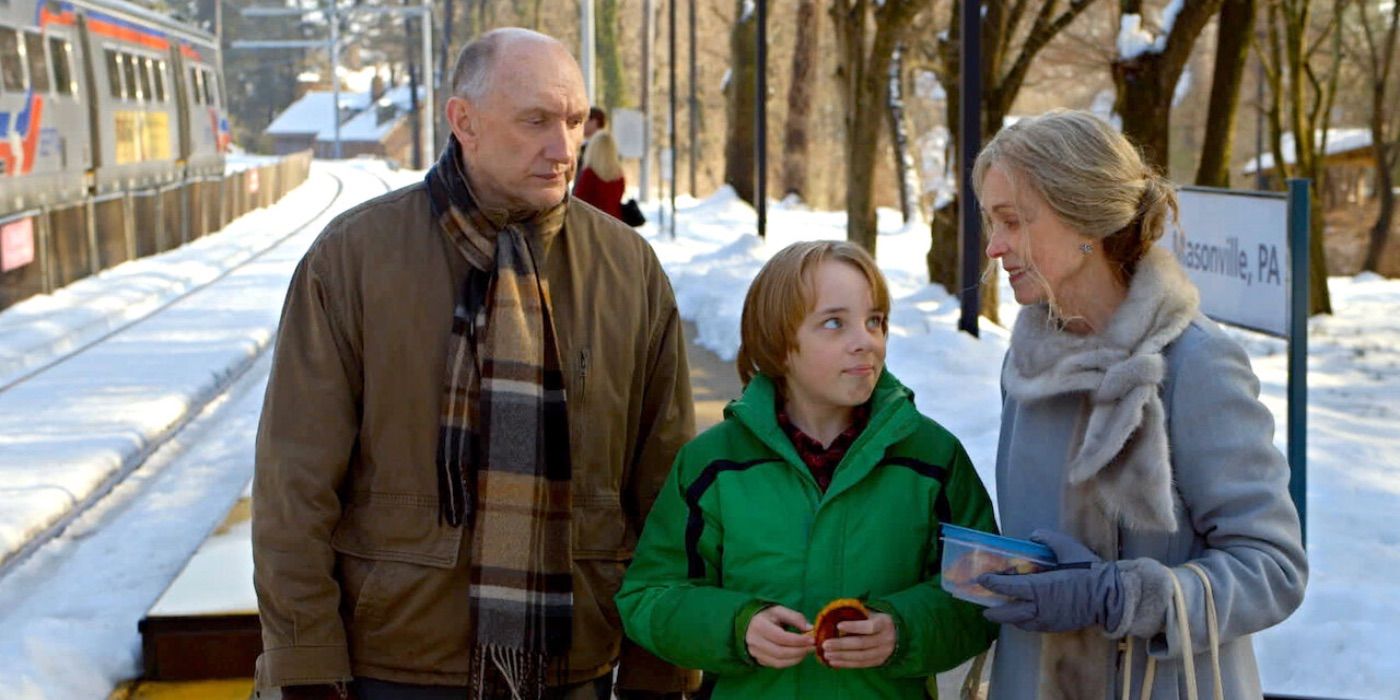
The Visit is a work of pure fiction with no real-life inspiration. The script was penned by M. Night Shyamalan, with many of the movie's more positive reviews calling it a return to his former glory. Nearly all the writer/director's films have been works of his own imagination, and in an interview with Geeks of Doom, he said, "That is the primal thing of it, that we are scared of getting old. Playing on that is a powerful conceit." The director would return to that theme a few years later in 2021's Old, but to a less effective extent.
The Grandparents Twist Explained
They Are Escaped Patients Who Killed The Real Grandparents
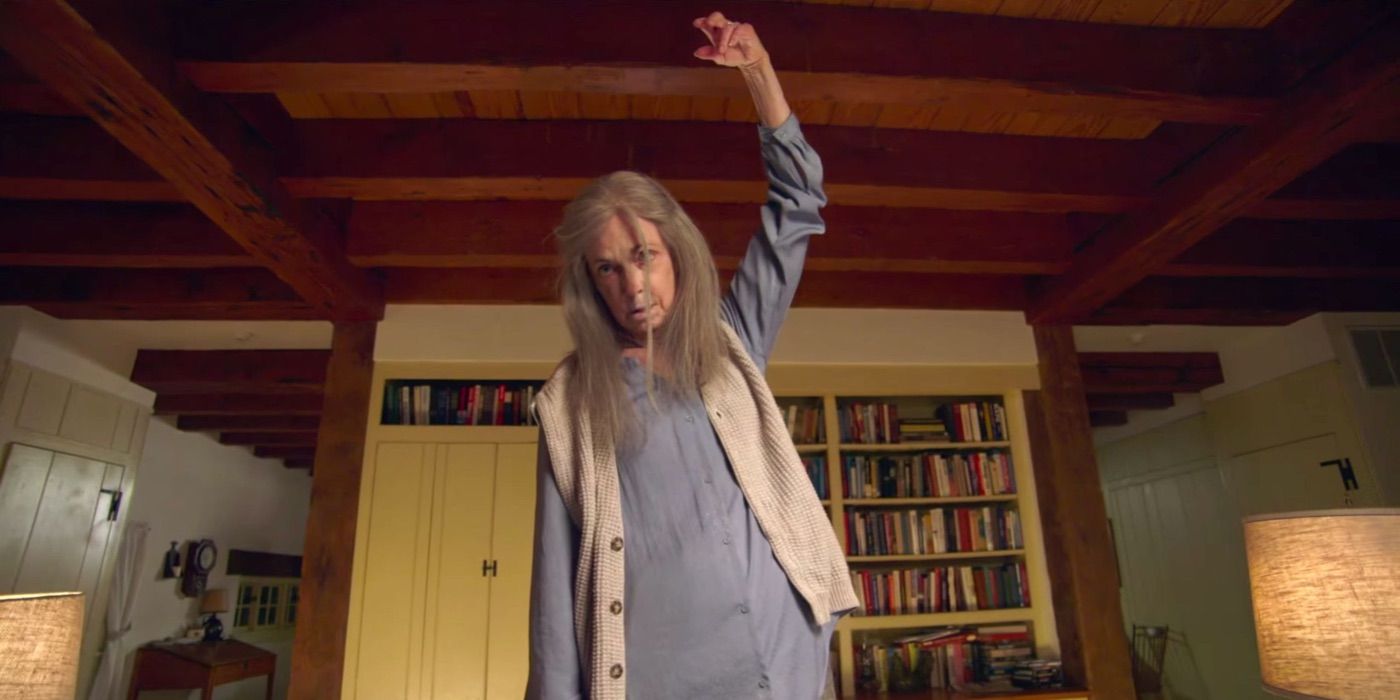
Throughout the film, Becca and Tyler are unsure about the behavior of their Pop Pop (Peter McRobbie) and Nana (Deana Dunagan), who have seemingly grown worse as the story progresses. Obviously, something wasn't right about the elderly couple, but the pieces finally clicked when Becca discovered the remains of her real grandparents stashed away in the basement.
Pop Pop and Nana are actually escaped patients from the local mental health facility.
It is revealed that Pop Pop and Nana are actually escaped patients from the local mental health facility and that they have killed Becca and Tyler's grandparents to assume their lives. It is unclear whether the two escapees would have posed a threat to the kids if they hadn't nosed around.
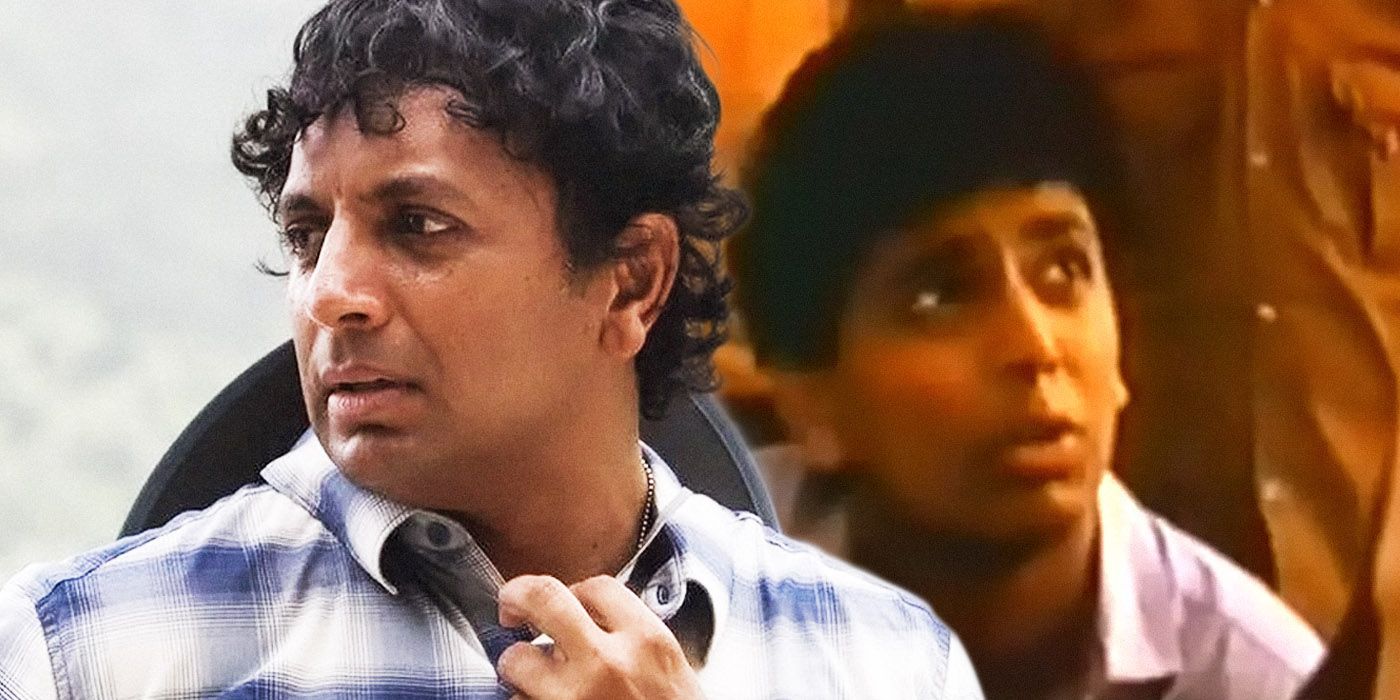
Related
Every Character M. Night Shyamalan Played In His Own Movies
Filmmaker M. Night Shyamalan has played characters in 11 of his movies, ranging from starring roles to the smallest of cameos.
If there is one thing that the multi-talented Shyamalan is best known for it is his films' abundant use of shocking twists towards the end of his stories. Nearly every M. Night Shyamalan twist has kept audiences guessing, and The Visit was unique because it truly earned its shocking climax. Unlike earlier films, which stuck a twist in just to fulfill the obligation, The Visit naturally built towards the twist, and it was a crucial part of the plot, unlike so many throw-away gimmick twists of the past.
The 'Documentary' Was Actually Important To The Plot
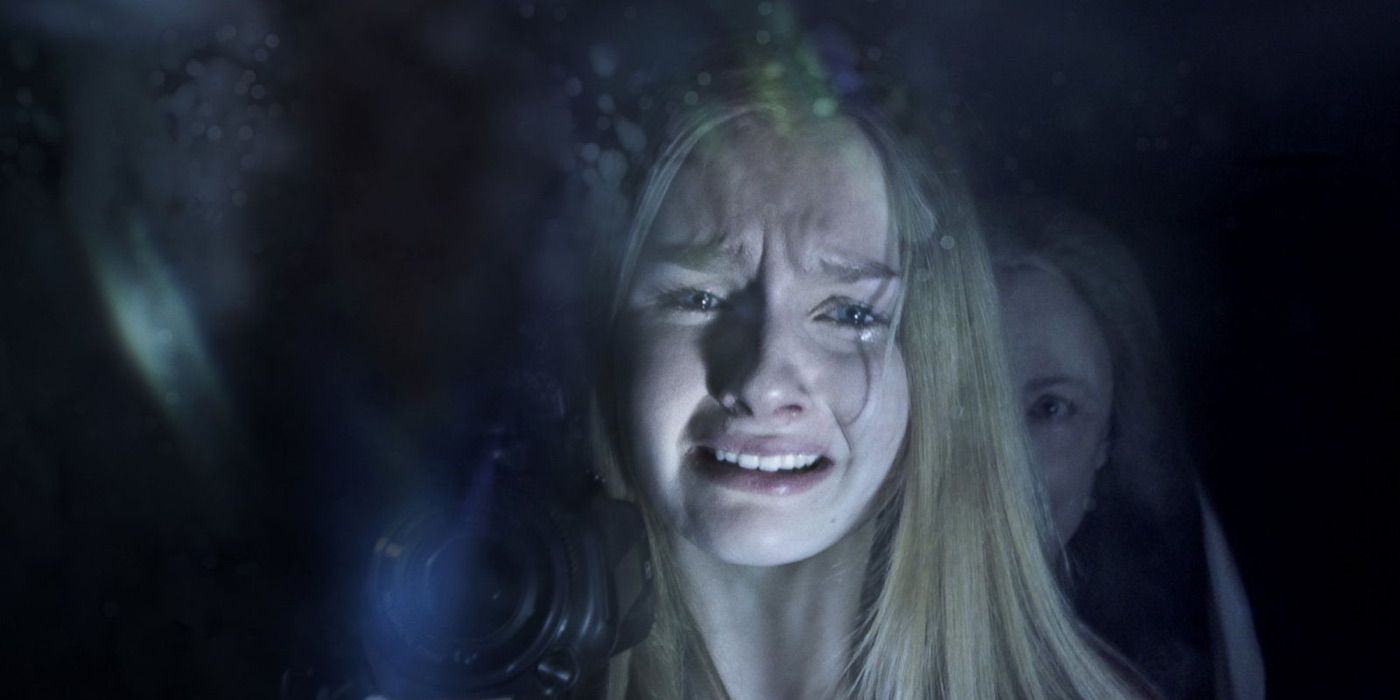
Thanks to blockbuster horror hits like Paranormal Activity, the found footage genre started to expand in earnest at the beginning of the 2010s. However, by 2015 and the release of The Visit, the style had largely fallen out of favor. Despite this downturn in popularity, The Visit nevertheless opted for an approach that innovated the found footage tropes by injecting a bit of humor and eschewing the self-serious tone.
It is about Becca's quest to chronicle her family for a documentary
From a story perspective, The Visit is a found footage movie because it is about Becca's quest to chronicle her family for a documentary, but the choice actually goes deeper. Unlike other directors who chose found footage as a cheap way to save on the movie's budget, Shyamalan intellectualized the style by making it crucial to the plot. In the same Geeks of Doom interview, the director mentioned, "The camera is an extension of those characters...It is manifesting in literal cinematography in this particular movie."
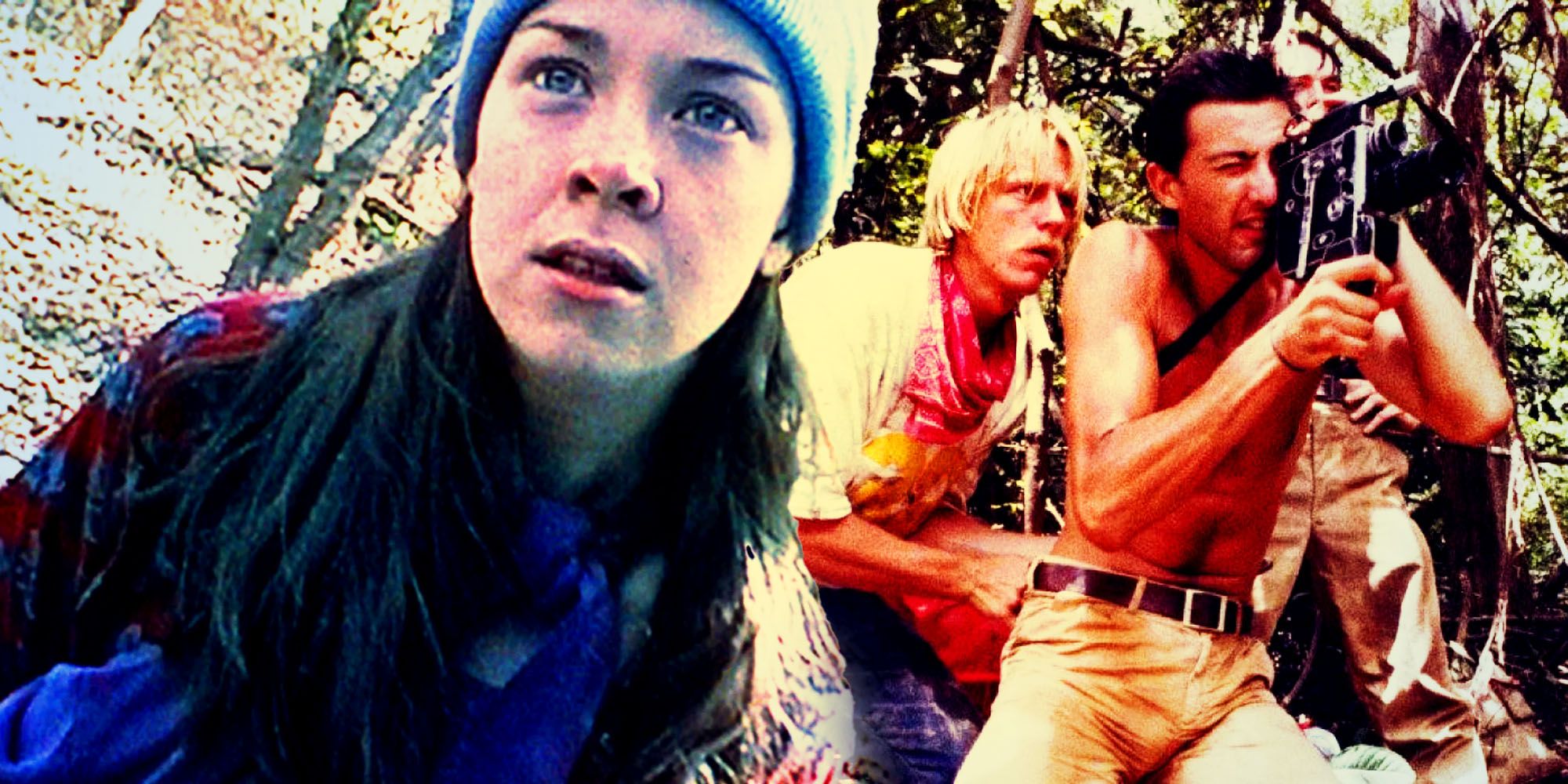
Related
The First "Found Footage" Movie Came 38 Years Before The Blair Witch Project
The Blair Witch Project was key in the history of the found-footage technique, but the very first movie to use this style was released in 1961.
Additionally, Becca's abundant camera usage actually factors into the plot, such as when she shows the footage to her mother, which further integrates it into the fabric of the film.
The Significance Of Tyler’s Phobias
Tyler Had To Defeat His Fears To Survive
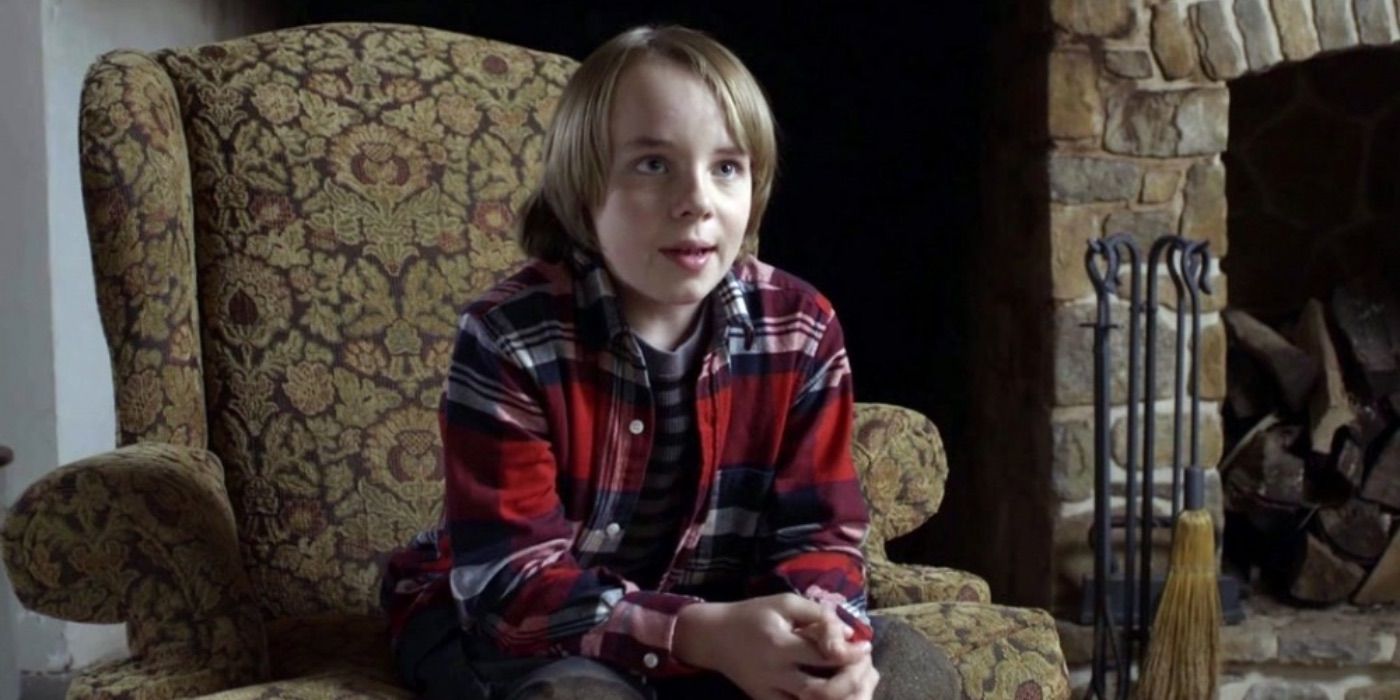
Horror movies are all about exploiting common phobias, and The Visit used Tyler's irrational fears as a chance to spook viewers and say something about the themes as well. Tyler is shown to be a bit of a germaphobe, and he also has a fear of freezing to death. While both have rational elements and point back to the omnipresent fear of death from which all phobias stem, Tyler's fears also speak to the idea that the elderly are frightening because they are reminders of death.
The slow degradation of the body through aging is a lot like freezing to death, and it is clear that Tyler sees his elderly grandparents as unclean which activates his germ phobia.
He literally kills his tormentor with a symbol of the thing that mentally torments him.
The hilariously gruesome scene in which Pop Pop rubs his dirty adult diaper in Tyler's face forces the younger man to confront his fears, and it empowers him later when he finally dispatches the imposter grandpa. It is likely not a coincidence that Tyler kills Pop Pop by slamming his head in the refrigerator, as the ice box is an extension of Tyler's fear of freezing. He literally kills his tormentor with a symbol of the thing that mentally torments him.
How Loretta’s Past Affected The Kids
Loretta's Trauma & Negligence Endangered Her Kids
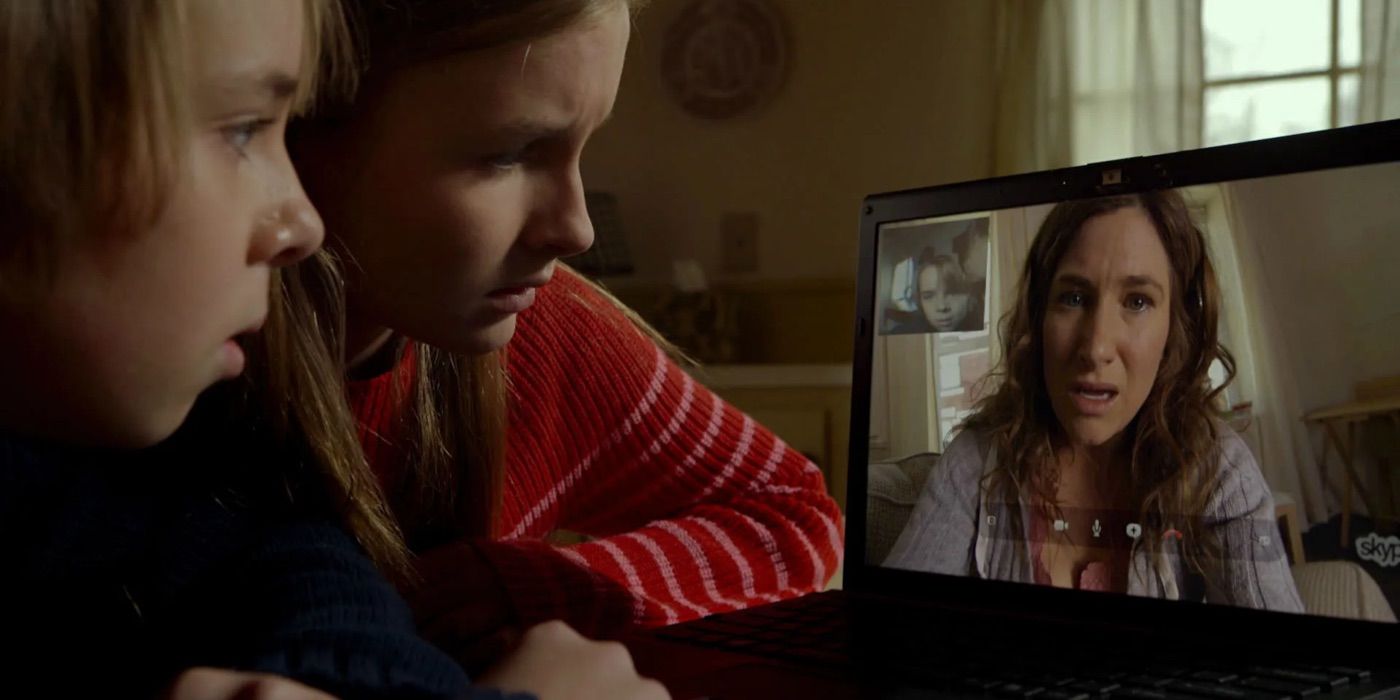
At the beginning of the film, Becca and Tyler's mom Loretta (Kathryn Hahn) explains that she hasn't spoken to her parents in 15 years because she eloped with one of her high school teachers when she was only a teenager. Instead of facing her problems like an adult, Loretta instead allowed her kids to act as a bridge between the generations, inadvertently sending them to live with two violent escapees from the local mental health ward.
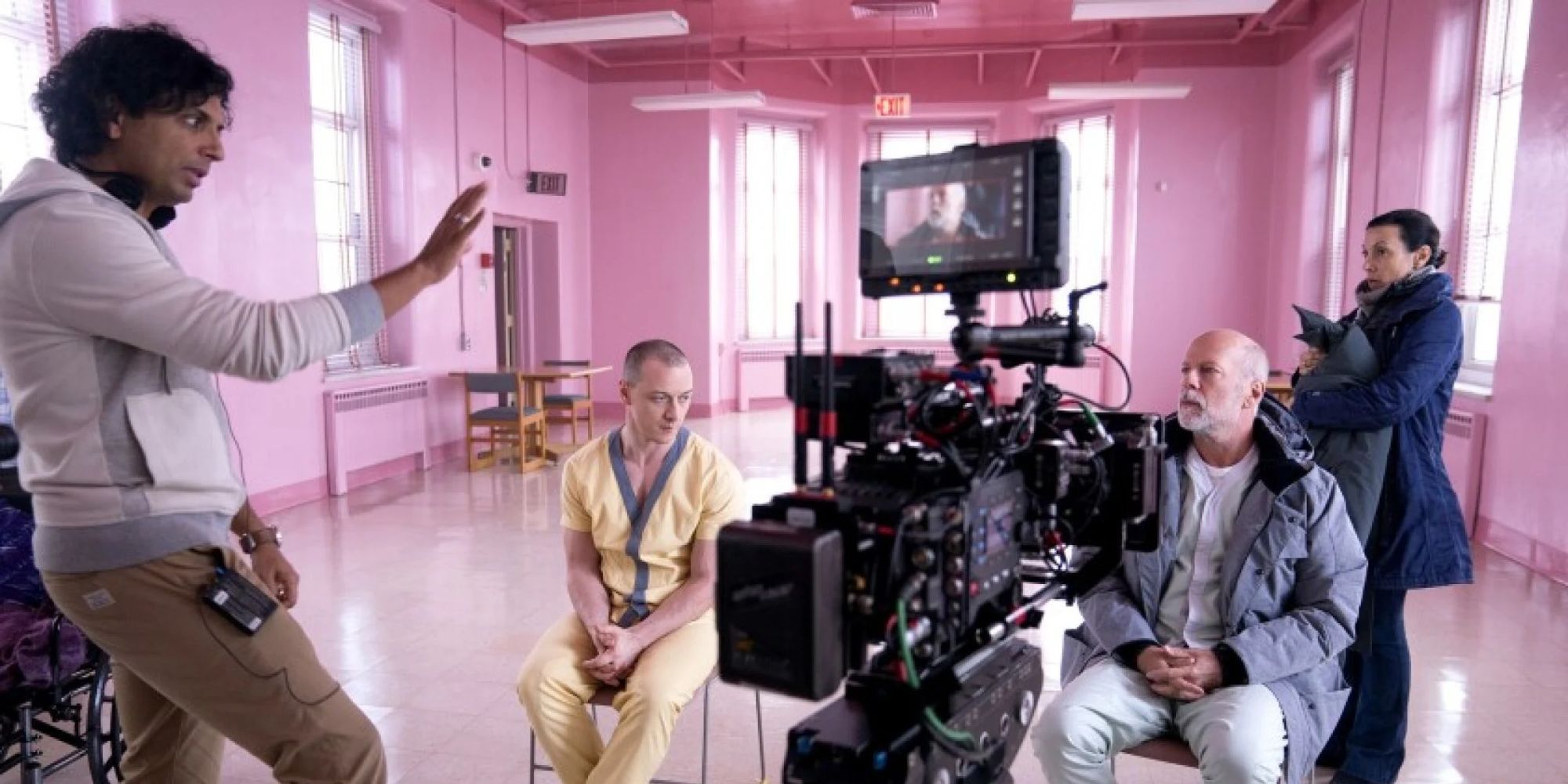
Related
How Many M. Night Shyamalan Movies REALLY Have Twists
M. Night Shyamalan is famous for his signature twist endings but when put under a more discerning lens, not all of his films have an authentic twist.
Loretta would later reveal that Nana and Pop Pop aren't her parents in one of Shyamalan's most terrifying scares, but she was away on a cruise and couldn't come to their aid. This forces her kids to mature faster than she ever could, and they go on the offense as they are tasked with escaping from the murderous impostors occupying their grandparent's home.
Loretta explains her last interaction with her parents turned violent.
At the end of the film, Loretta explains her last interaction with her parents turned violent, which sheds a bit of light on why she couldn't just face up to the past. In some ways, Loretta's choices as a teenager eventually led to the precarious situation that Becca and Tyler ended up in, and she passed a bit of generational trauma on to them.
Why Becca Puts Her Father In The Documentary
Becca Believes Forgiveness Is The Best Path
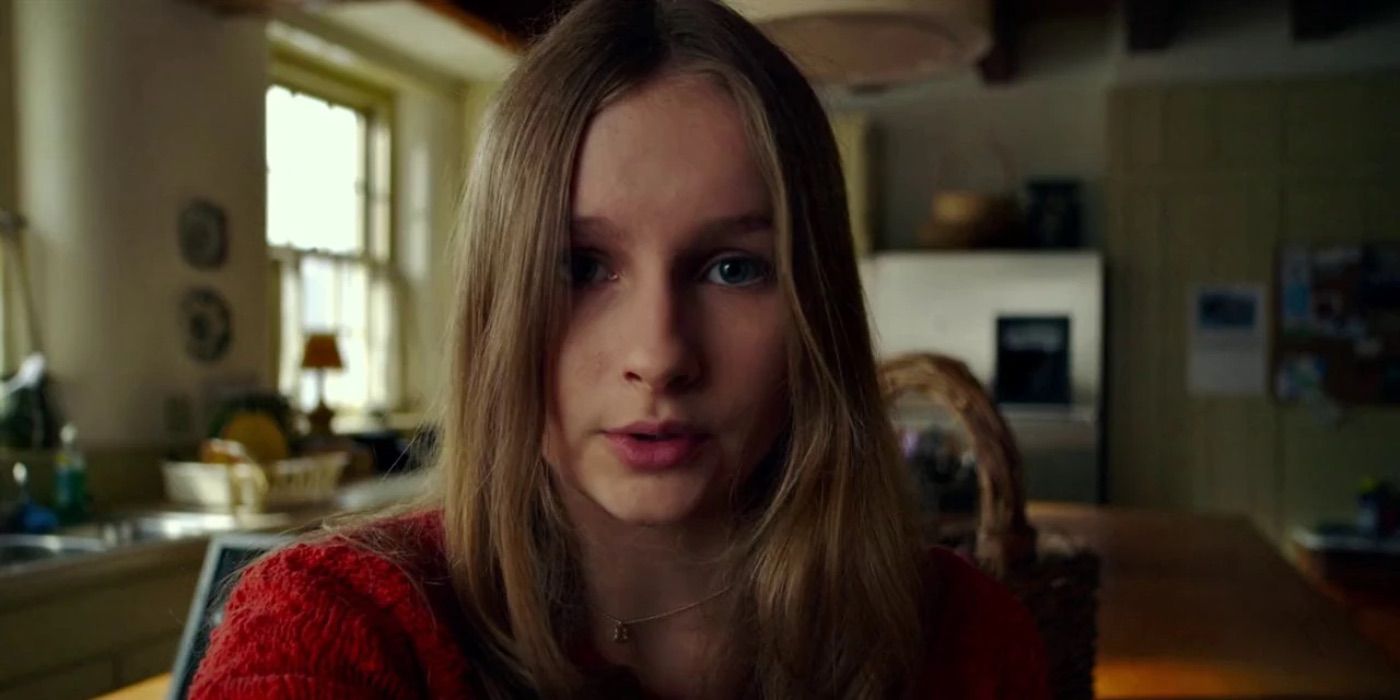
Having survived the harrowing ordeal, Becca's documentary finally begins to take shape at the very end of The Visit. She is given the chance to cut in footage of her estranged father, and though Loretta informs her she doesn't have to, Becca opts to put him in. This choice shows that Becca has matured significantly since the titular visit, and she has come to the realization that forgiveness really is the best path.
Loretta could never forgive her parents, and it robbed her of a chance for reconciliation. By putting her dad in the documentary, Becca left that door open for her future self and maybe her own children too.
The Real Meaning Of The Visit’s Ending
The Fear Of Death & The Road To Reconciliation
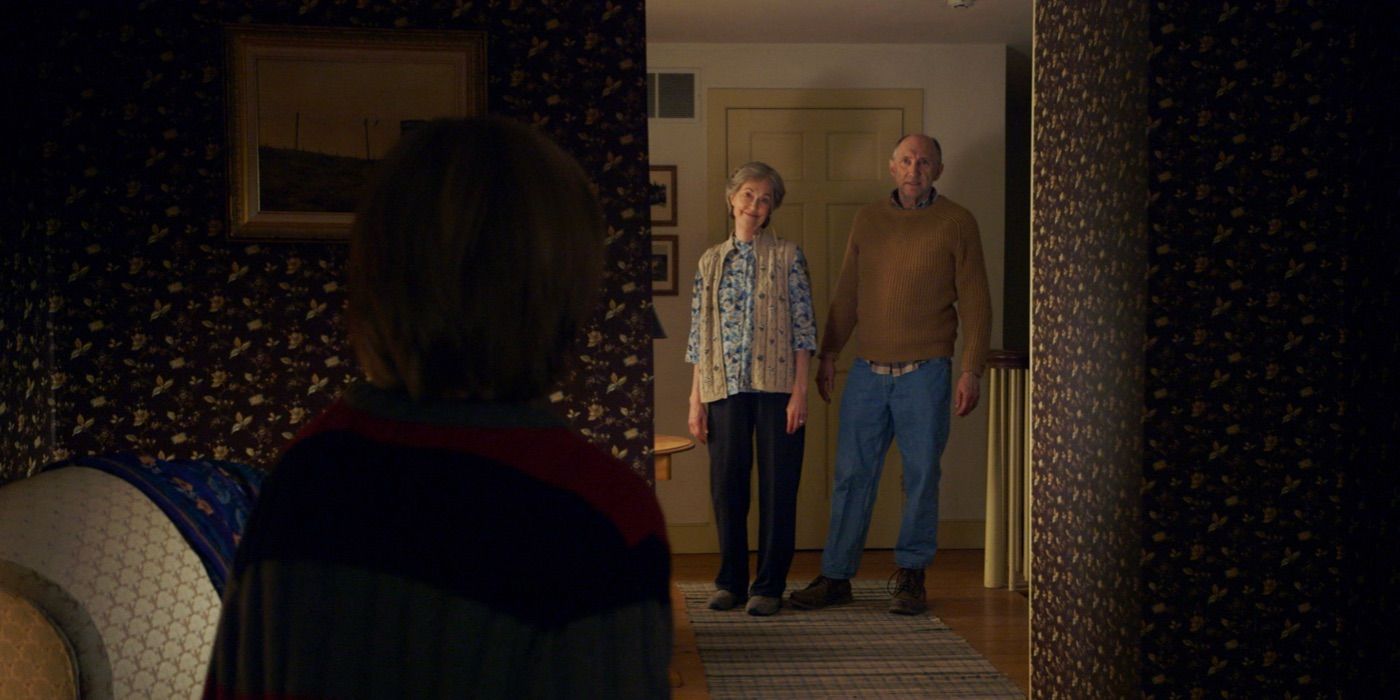
From a horror perspective, the ending of The Visit is all about the fear of death as personified by the elderly. Nana and Pop Pop are terrifying embodiments of the eventual degradation of the body, though they also fill the role of the conventional horror antagonist. However, from a more thematic side, The Visit is also about forgiveness and reconciliation, as the harboring of deep-seated pain can eventually lead to a bad outcome. Even if it isn't literally an encounter with escaped murderers, it is at least a path of nothing but pain and loss.
How The Visit Ending Was Received
The Movie Was Mostly Underappreciated Upon Its Release
Neither fans nor critics were impressed with The Visit when M. Night Shyamalan first released it. Between the idea of another found footage movie and the discourse about Shyamalan's recent output, not many people expected much from the film. However, when it comes to the ending, it seems that was what most fans liked the best about it. One reviewer on Rotten Tomatoes wrote, "Nice plot twist in the end, i enjoyed. It was a bit boring, but got better towards the end."
There were detractors, but there were also professional critics who appreciated what Shyamalan was trying to do and the latest twist ending. When discussing the ending, Wesley Morris of Grantland wrote, "It does turn a generically creepy movie into something more concretely frightful ... It was fun watching this with a gasping and screaming audience. For horror-goers, the comparative competence must hit the spot. But there’s nothing new here."
The Visit did receive some criticism based on the quick decline of the grandparents' mental facilities as the movie goes on. However, a Reddit thread that brought this up had viewers consider the cause to be a lack of medication after the couple escaped the mental hospital.
"It is safe to assume that the imposters were on a significant amount of medication frequently, if not every day ... As their bodies become less abundant with whatever medication they were taking, and as they become more alienated from the safe environment of the asylum, whatever illnesses they have grow more abundant and dangerous."
Finally, there was another Reddit thread where @somethingsummer wrote that seeing the twist ending coming actually made The Visit better: "I really liked it! But the twist was pretty easy to figure out, even so I think that sort of adds to the movie? Figuring out why things are the way they are gave me a greater sense of dread during certain moments, I think."
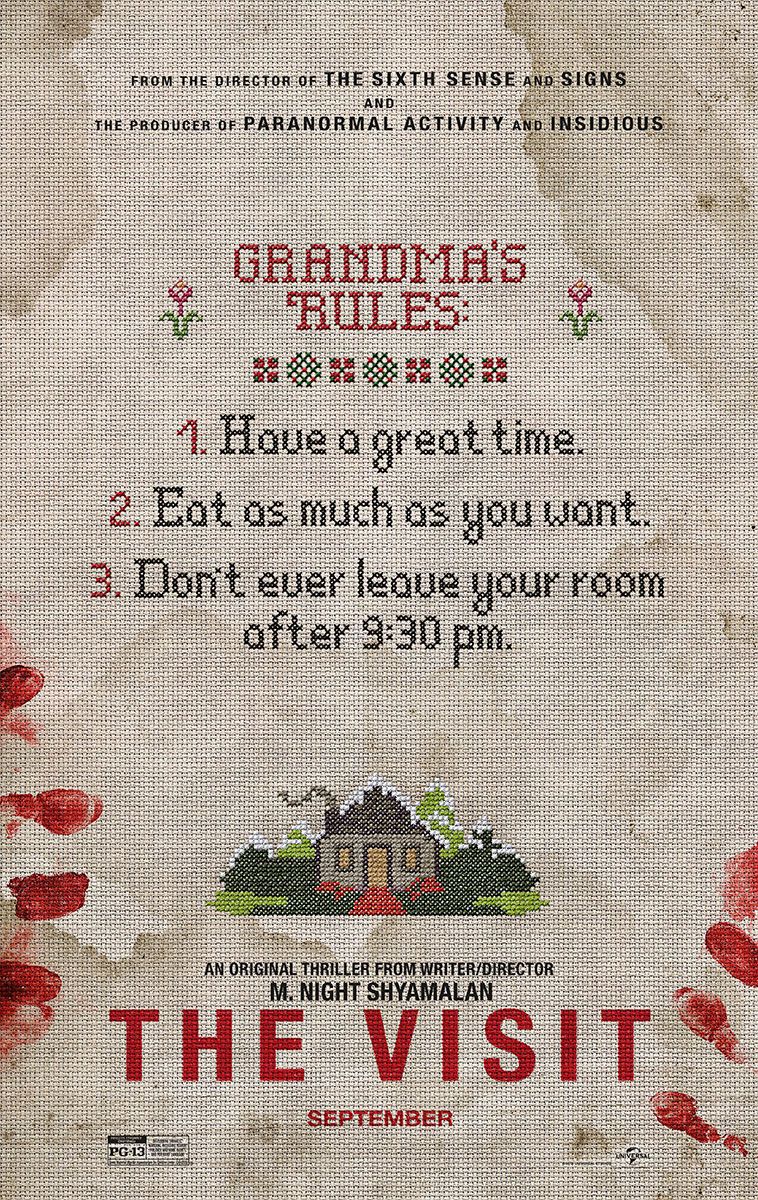
From director M. Night Shyamalan, The Visit follows two siblings who are sent to stay with their estranged grandparents while their mother is out of town on vacation. Realizing that all isn't what it seems during their stay, the siblings set out to find out what is really going on at their grandparents' home. Olivia DeJonge and Ed Oxenbould star as Becca and Tyler, with Deanna Dunagan, Peter McRobbie, and Kathryn Hahn making up the rest of the main cast.
Release Date September 11, 2015
Distributor(s) Universal Pictures
Runtime 94 Minutes


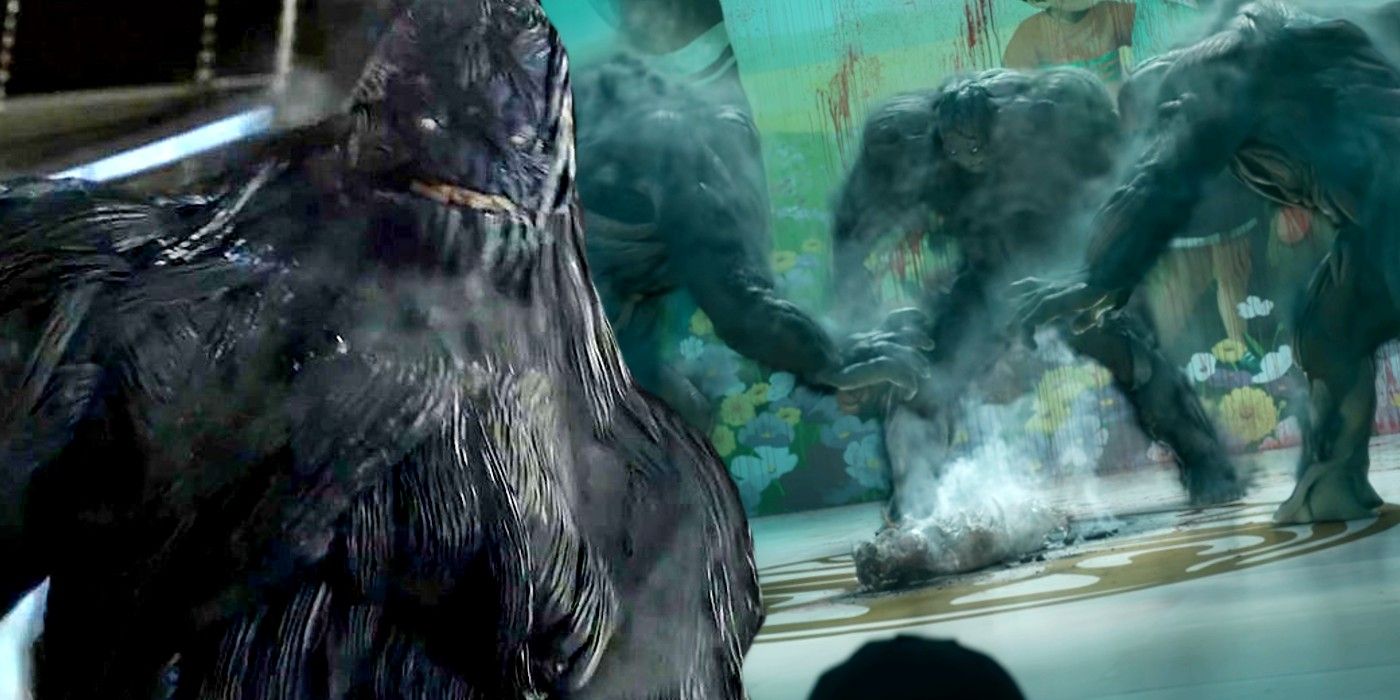

:quality(85):upscale()/2024/10/29/625/n/1922564/ec222ac66720ea653c5af3.84880814_.jpg)
:quality(85):upscale()/2024/10/29/957/n/1922441/c62aba6367215ab0493352.74567072_.jpg)
:quality(85):upscale()/2021/07/06/971/n/1922153/7d765d9b60e4d6de38e888.19462749_.png)

:quality(85):upscale()/2024/10/29/987/n/49351082/3e0e51c1672164bfe300c1.01385001_.jpg)
 English (US) ·
English (US) ·